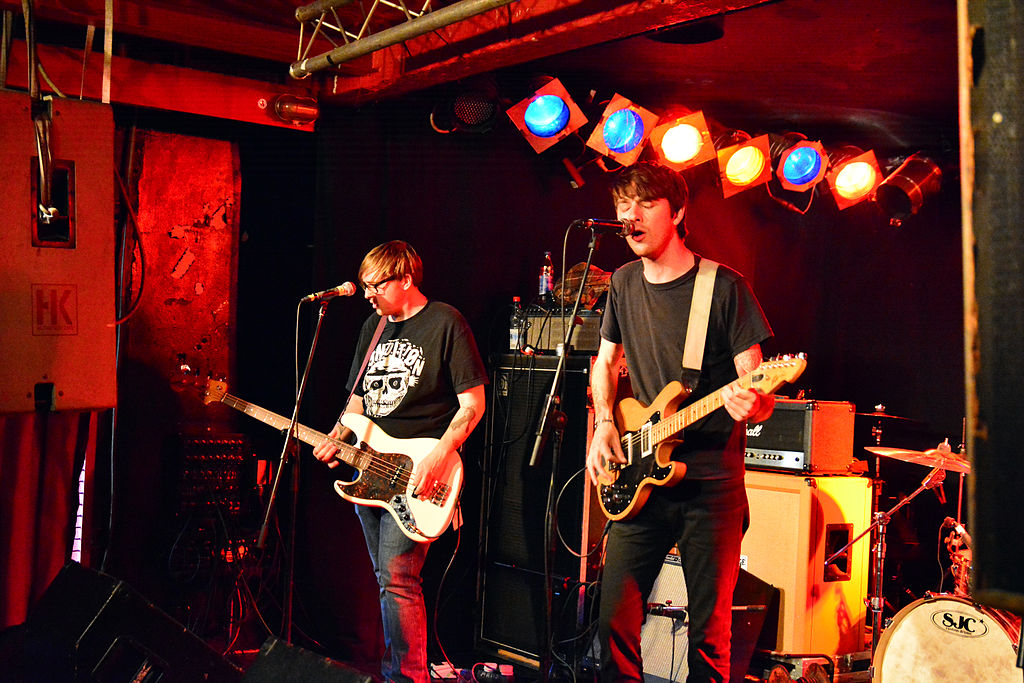In the five years since they burst onto the emo revival scene with their 2011 self-titled album, Joyce Manor has spit out three unapologetically fast-paced albums. Cody, their fifth and most recent album, divulges a softer, more somber side of the California punk band. Although the album is just twenty-four minutes long, Cody is unusually lengthy for Joyce Manor, who has never before released an album surpassing twenty minutes. Cody includes the band’s longest song to date, “Stairs,” clocking in at a whopping four minutes. The album’s uncharacteristic length is just one byproduct of the group’s recent growing pains and marks their crossing over into the pop realm of the punk arena.
Despite their youth, Joyce Manor has not gone unnoticed. Following the critical acclaim of their 2014 album, Never Hungover Again, the band has played major venues and the mainstream festival circuit. Evidently, the group has grown fond of the limelight; Cody is accessible and popish, symbolic of the band casting a wider net to potential fan bases. Despite this, the album does not trade emotion for palatability. It tackles the struggles of aging and exudes confusion, the kind that inevitably follows an exit from teenage years. The first song, “Fake I.D.” could be mistaken for kitschy pop at face value, but it is, in reality, a sad reflection on empty intimate interactions. “Eighteen,” the following song, consists of retrospective glances and loosely didactic commentary, “Eighteen, life is a bad dream. But then you wake up and things are different for you. It seems so simple when you step back and view it. Just find something to do and then do it.”
The album’s emphasis on maturation is fitting of the group’s growth as a whole. Cody was the first album released following the group’s partnering with record producer Rob Schnapf, noted for his work with Elliot Smith. Schnapf stretched Joyce Manor professionally; he pushed the band to craft longer songs and clean up their coarse sound.
The latter half of Cody becomes even more entrenched in melancholy. “Angel In The Snow ” (possibly a tribute to Elliot Smith, who released a song of the same title on his album New Moon) explores the past of lead singer Barry Johnson. The song is not depressing, though. Johnson’s vocal have an edge, resembling a modern Mick Jones, and his hooks are catchy enough to suppress the desolate undertones. “Stairs” and “Over Before It Began” show a similar understanding of the power of upbeat tempos and stripped-down instrumentals. Joyce Manor uses these tools to counterbalance Cody’s sensitive songwriting and thematic heaviness.
In cashing in their quick, raw, head-banging songs for a more subdued sound, Joyce Manor makes their first move out of the shadows of punk. While old fans may be disappointed with the new, tamer sound, Cody could be the demonstration of professionalism and refinement necessary to catapult Joyce Manor into mainstream popularity.







